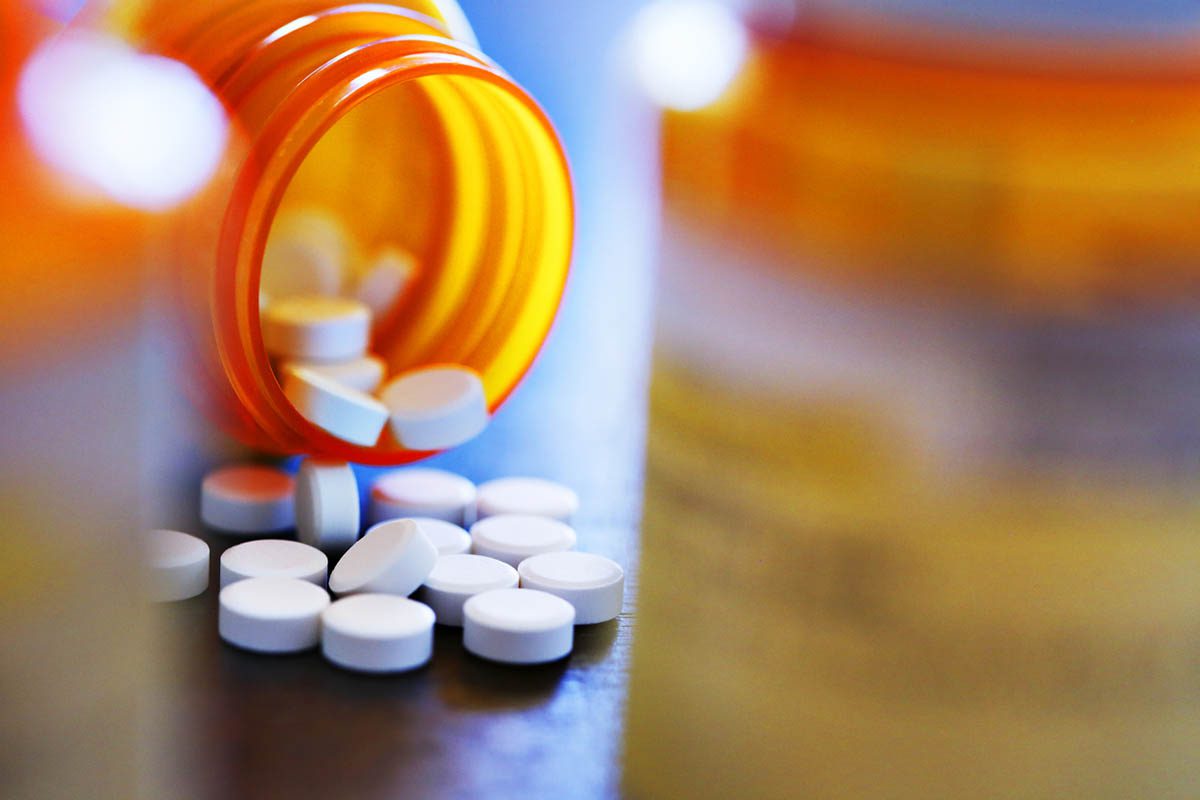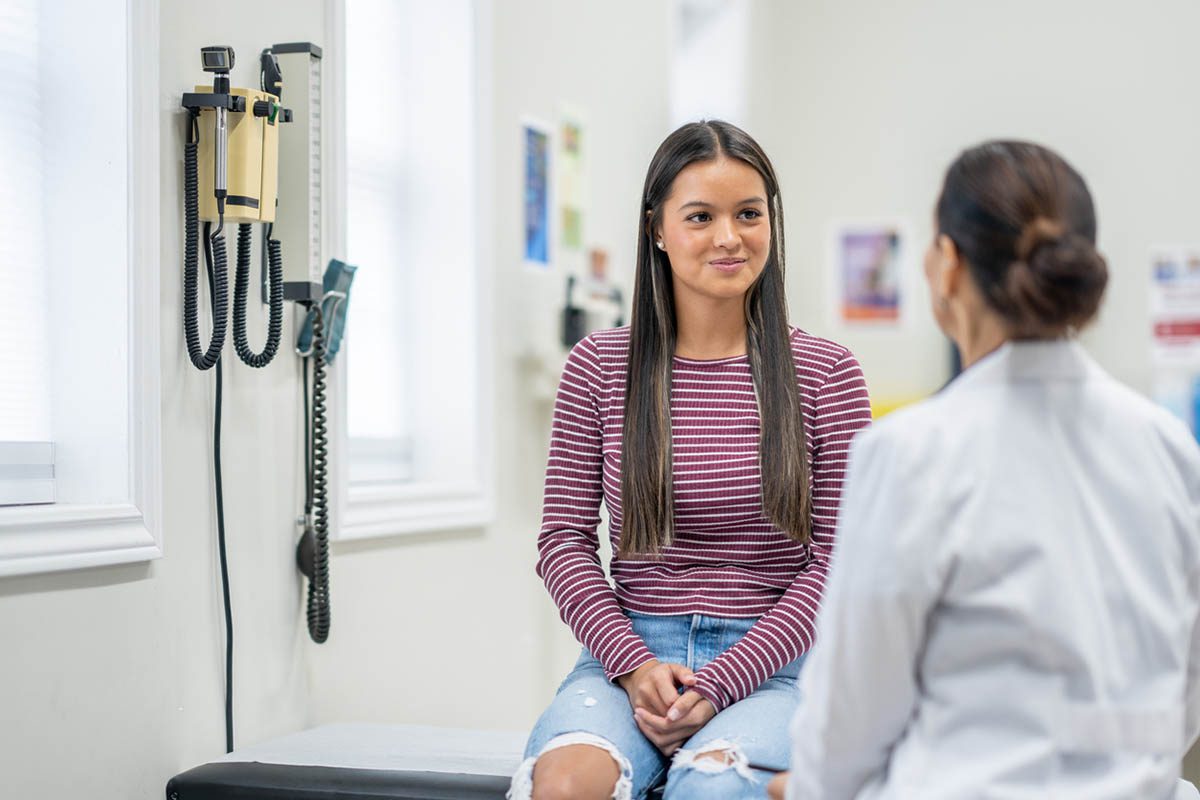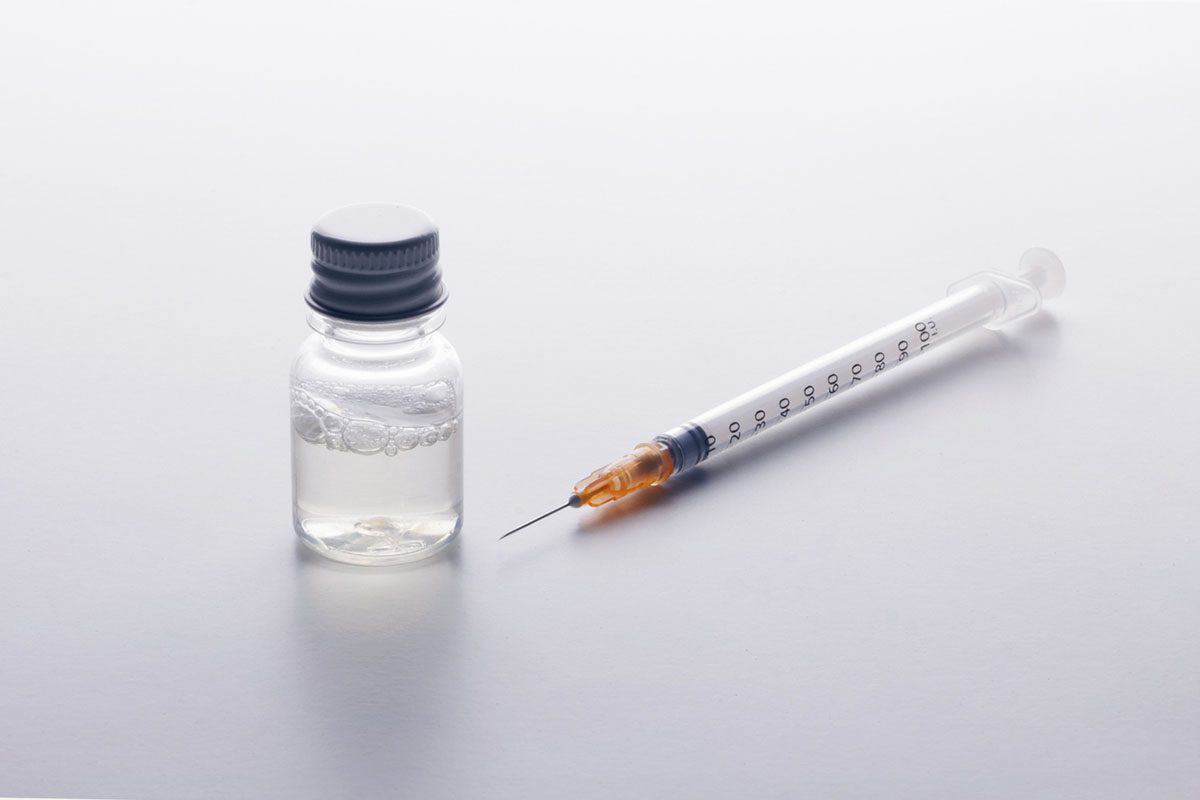Treatment of Hyperprolactinemia and Gynecomastia With Adjunctive Aripiprazole in 2 Men Receiving Long-Acting Injectable Antipsychotics
To the Editor: Hyperprolactinemia and its consequences, including sexual dysfunction, osteoporosis, pituitary tumors, and gynecomastia, are potential side effects of many antipsychotics.1 Treatment recommendations include decreasing the dose of the antipsychotic, switching to a prolactin-sparing antipsychotic, or adding medications such as direct-acting dopamine agonists1; however, options are limited with long-acting injectable antipsychotics. A series of reports and clinical trials have shown that the antipsychotic aripiprazole, a partial dopamine D2 receptor agonist, can lower prolactin concentrations and potentially reduce prolactin-related effects (eg, sexual dysfunction) when given with oral antipsychotics.2-5 We report, for the first time, the adjunctive use of aripiprazole for the treatment of hyperprolactinemia and associated gynecomastia related to long-acting injectable antipsychotics.
Case 1. Mr A, a 29-year-old man of Indian ancestry with DSM-IV schizophrenia and nicotine dependence, was hospitalized for a suicide attempt in late 2009. Risperidone microspheres 25 mg intramuscularly every 2 weeks and oral risperidone 1 mg twice daily were started. He responded to treatment and continued on this regimen; however, prolactin levels were elevated (21.9 ng/mL; reference, 2-14 ng/mL) 3 months later. Oral risperidone was discontinued, but intramuscular risperidone was continued; about 10 months later, prolactin levels were higher, (29.8 ng/mL; reference, 2-14 ng/mL) Two months after this finding, Mr A reported sexual dysfunction and left breast tenderness and redness, with no galactorrhea evident on physical examination. He was prescribed oral aripiprazole 2.5 mg daily, and, after a month, breast tenderness and redness resolved, with no worsening of psychotic symptoms. Prolactin level dropped to 18.6 and 16.3 ng/mL (reference, 3.5-19.4; new reference standards were reported due to a change by the laboratory in the assay to measure prolactin levels) 2 months and 5 months later, respectively. Risperidone 25 mg intramuscularly every 2 weeks and oral aripiprazole 2.5 mg daily were continued with no reported symptoms of breast tenderness and with an improvement in sexual function.
Case 2. Mr B, a 58-year-old African American man diagnosed with DSM-IV schizophrenia and cocaine abuse in remission, was treated with fluphenazine decanoate 25 mg intramuscularly every 2 weeks starting in 1991 and then with 15 mg intramuscularly every 2 weeks starting in 2002. In 2009, he first reported breast tenderness and enlargement with no galactorrhea. He reported worsening of these symptoms in early 2011. Prolactin level in the middle of 2011 was 9.9 ng/mL (reference, 2-14 ng/mL) and then 12.2 ng/mL a week later. Bilateral tender gynecomastia, 3 cm on the left and 2 cm on the right, without galactorrhea was noted after about a month. Serum estradiol, testosterone, human chorionic gonadotropin β, and luteinizing hormone levels were all within normal limits. A trial of oral tamoxifen 10 mg daily was initiated by the endocrinologist, but despite 4 weeks of treatment, the patient reported continued breast tenderness and had a significantly elevated prolactin level (33.2 ng/mL; reference, 3.5-19.4 ng/mL). Four months later, tamoxifen was stopped; prolactin level decreased to 19.9 ng/mL (reference, 3.5-19.4), but breast tenderness continued. That same month, oral aripiprazole 5 mg daily was added to treatment with fluphenazine decanoate. A month later, Mr B reported resolution of breast tenderness and improvement in psychiatric symptoms; serum prolactin level was 12.7 ng/mL (reference, 3.5-19.4 ng/mL). Over the next few months, Mr B reported well-controlled psychotic symptoms without breast tenderness; prolactin concentration was 5.2 and 5.6 ng/mL (reference, 3.5-19.4 ng/mL) after 2 months and 4 months, respectively. However, after 4 months, he reported new breast swelling and tenderness, and the dosage of oral aripiprazole was increased to 10 mg daily. Complete resolution of breast soreness was seen after 1 month.
The majority of reported cases to date have shown that aripiprazole can reverse hyperprolactinemia and related side effects associated with other oral antipsychotics.2-5 A recently published open-label study by van Kooten and colleagues6 found, similar to this report, that aripiprazole given adjunctively with long-acting injectable risperidone can decrease prolactin concentrations.6 However, in that report, none of the participants had symptoms related to hyperprolactinemia. While several studies have shown that aripiprazole can decrease serum prolactin level, serum prolactin level does not correlate with related side effects in men.7 Therefore, it is important to determine if addition of aripiprazole can reverse hyperprolactinemia-induced side effects in addition to causing decreases in serum prolactin. We report, for the first time, that low-to-moderate adjunctive doses of aripiprazole can reverse gynecomastia associated with hyperprolactinemia caused by long-acting injectable antipsychotics.
References
1. Haddad PM, Wieck A. Antipsychotic-induced hyperprolactinaemia: mechanisms, clinical features and management. Drugs. 2004;64(20):2291-2314. PubMed doi:10.2165/00003495-200464200-00003
2. Shim J-C, Shin J-GK, Kelly DL, et al. Adjunctive treatment with a dopamine partial agonist, aripiprazole, for antipsychotic-induced hyperprolactinemia: a placebo-controlled trial. Am J Psychiatry. 2007;164(9):1404-1410. PubMed doi:10.1176/appi.ajp.2007.06071075
3. Lee B-H, Kim Y-K, Park S-H. Using aripiprazole to resolve antipsychotic-induced symptomatic hyperprolactinemia: a pilot study. Prog Neuropsychopharmacol Biol Psychiatry. 2006;30(4):714-717. PubMed doi:10.1016/j.pnpbp.2006.02.001
4. Yasui-Furukori N, Furukori H, Sugawara N, et al. Dose-dependent effects of adjunctive treatment with aripiprazole on hyperprolactinemia induced by risperidone in female patients with schizophrenia. J Clin Psychopharmacol. 2010;30(5):596-599. PubMed doi:10.1097/JCP.0b013e3181ee832d
5. Kane JM, Correll CU, Goff DC, et al. A multicenter, randomized, double-blind, placebo-controlled, 16-week study of adjunctive aripiprazole for schizophrenia or schizoaffective disorder inadequately treated with quetiapine or risperidone monotherapy. J Clin Psychiatry. 2009;70(10):1348-1357. PubMed doi:10.4088/JCP.09m05154yel
6. van Kooten M, Arends J, Cohen D. Preliminary report: a naturalistic study of the effect of aripiprazole addition on risperidone-related hyperprolactinemia in patients treated with risperidone long-acting injection. J Clin Psychopharmacol. 2011;31(1):126-128. PubMed doi:10.1097/JCP.0b013e318205e1aa
7. Kleinberg DL, Davis JM, de Coster R, et al. Prolactin levels and adverse events in patients treated with risperidone. J Clin Psychopharmacol. 1999;19(1):57-61. PubMed doi:10.1097/00004714-199902000-00011
Author affiliations: Pharmacy Service (Drs D. Boggs and A. Boggs) and Psychiatry Service (Drs Ranganathan and D’ Souza and Mss Bihday and Peluse), Veterans Affairs Connecticut Healthcare System, West Haven; Department of Psychiatry, Yale University School of Medicine, New Haven (Drs D. Boggs, Ranganathan, and D’ Souza); and Abraham Ribicoff Research Facilities, Connecticut Mental Health Center, New Haven (Drs Ranganathan and D’ Souza).
Potential conflicts of interest: Dr D’ Souza is a consultant to Bristol-Myers Squibb and Johnson & Johnson and has received grant/research support from Pfizer, Abbott, and Forest. Drs D. Boggs and A. Boggs and Mss Bihday and Peluse report no potential conflict of interest relevant to the subject of this report.
Funding/support: None reported.
Published online: July 18, 2013.
Prim Care Companion CNS Disord 2013;15(4):doi:10.4088/PCC.13l01519
© Copyright 2013 Physicians Postgraduate Press, Inc.





